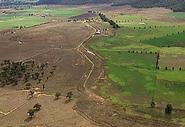Ian Boyd, Chief Scientific Adviser at the Department of Environment, Food and Rural Affairs, UK, explains why science is an essential component of policy-making. In Boyd's opinion, the scientific community does not always understand its role in this process. Science advice for policy faces two difficulties, the issue of where authoritative comment stops and political point of view starts, and the low-dimensional view of a multi-dimensional (or complex) problem usually taken by scientists. These two difficulties create a gap between the scientists' views of what policy outcomes should look like, and what these outcomes actually are once they have been through the mangle of policy development. This can be the source of dissatisfaction among scientists and can create an unsatisfactory dynamic between scientists and policy-makers. The role of science should be to provide information to those having to make decisions, including the public, and to ensure that the uncertainties around that information are made clear. It is thus important for scientists to stick to the evidence and its interpretation. Boyd uses a recent example involving the control of bovine tuberculosis (TB) in the UK to illustrate his point.




